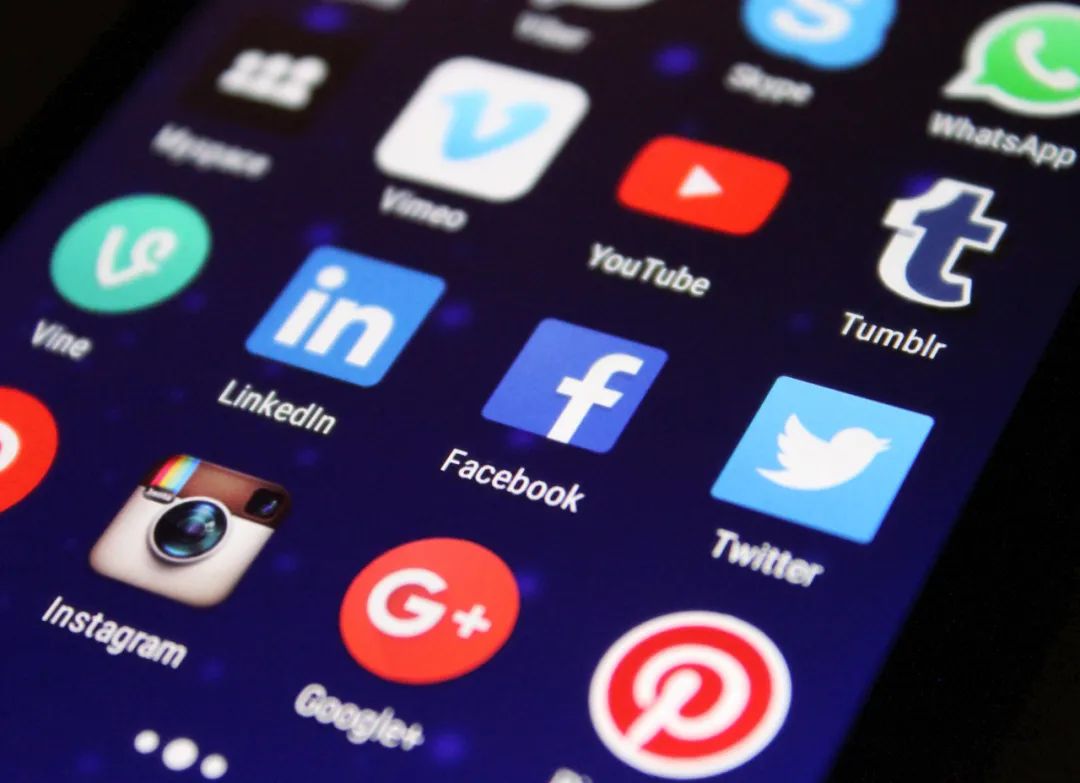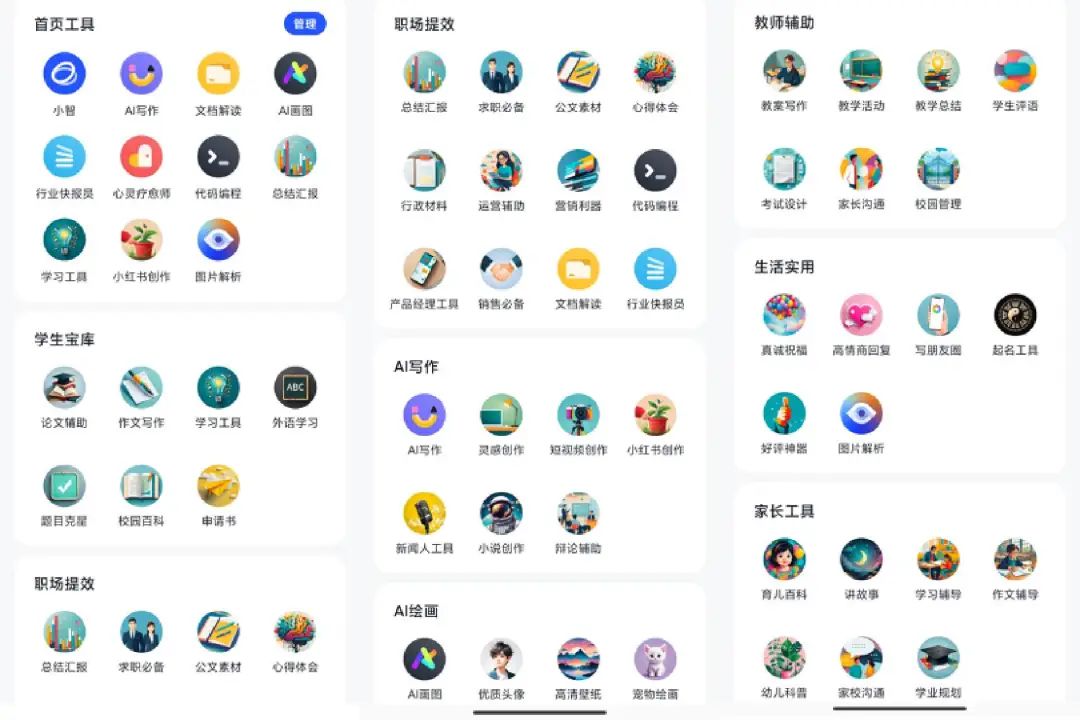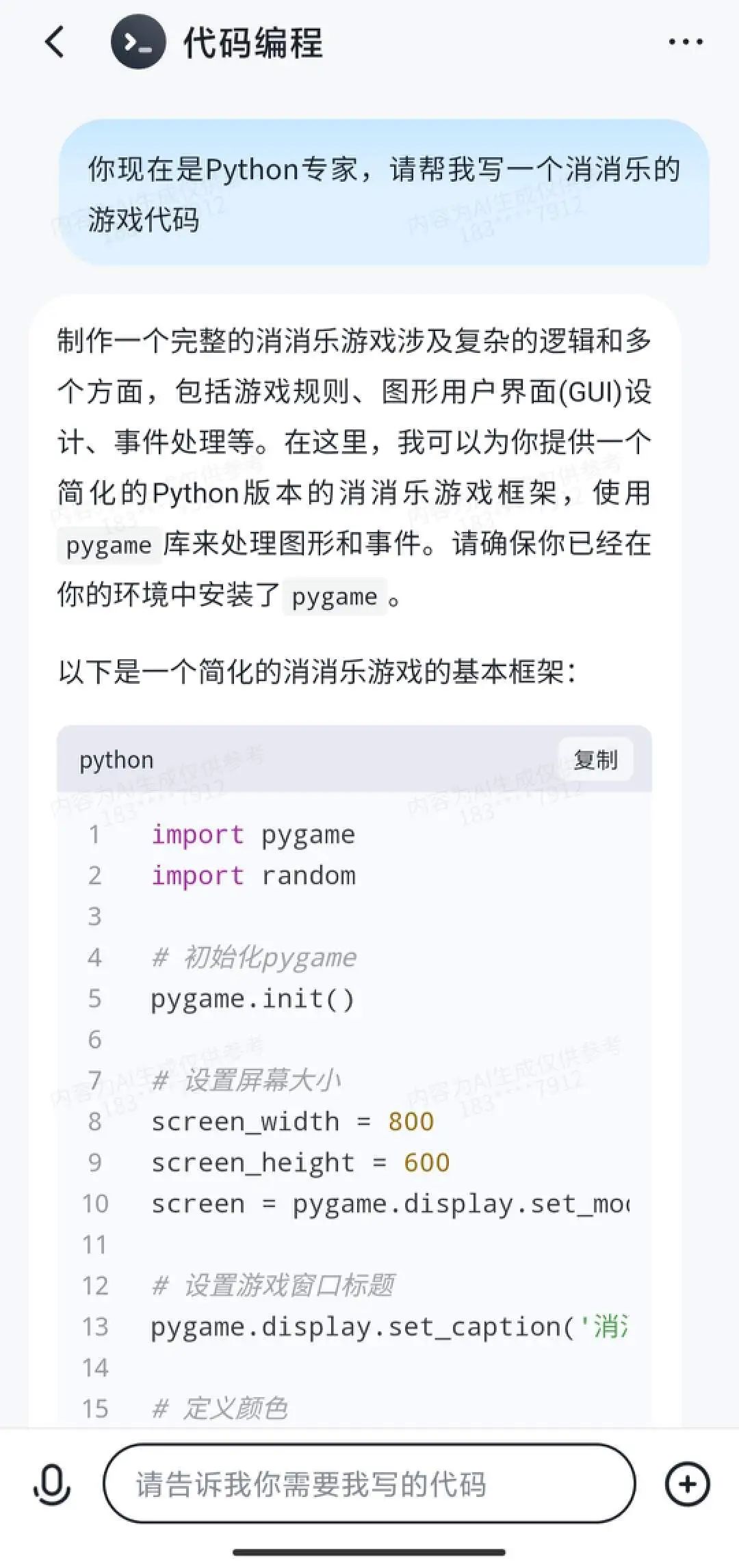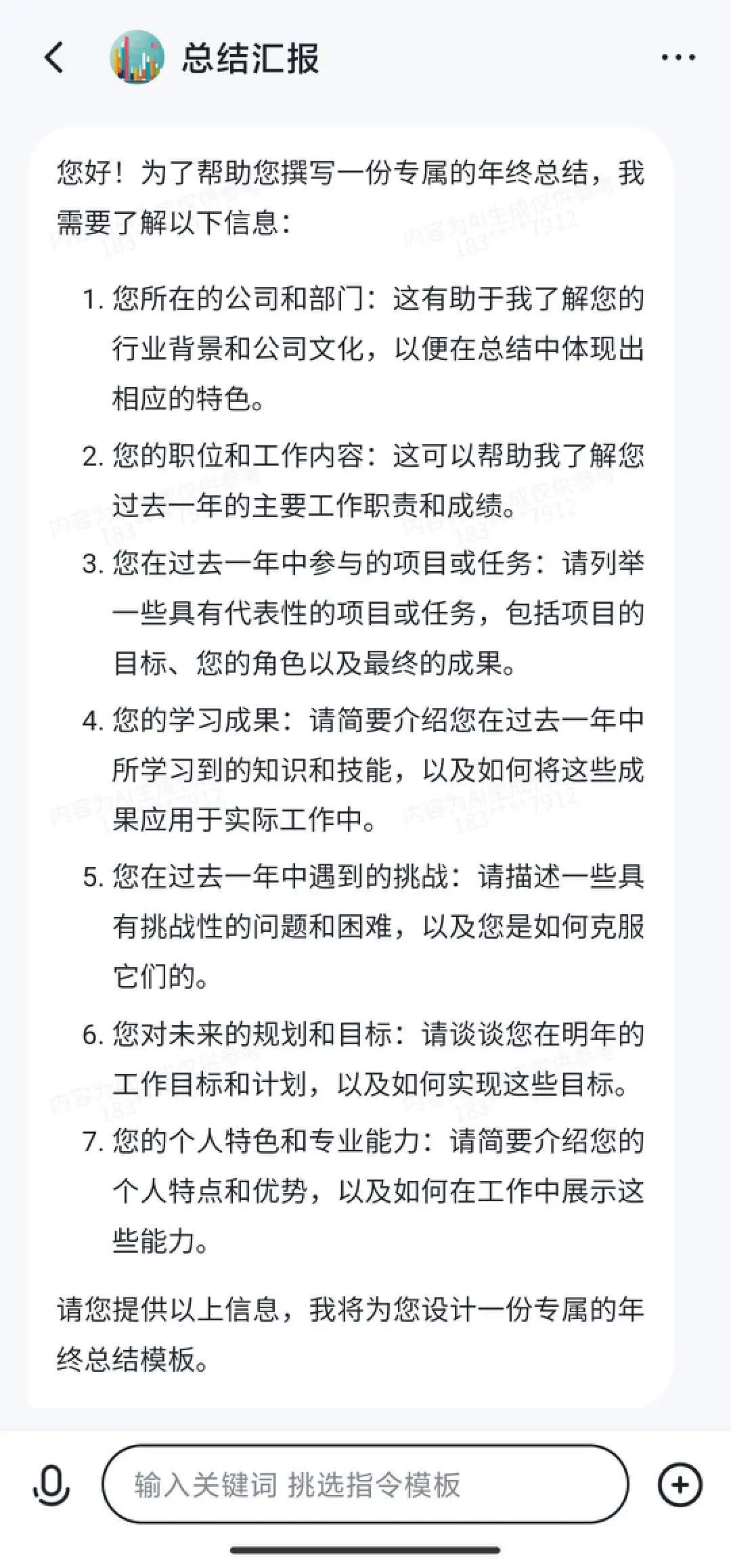Embracing AI Means Embracing the Future: AI Tools Open Information Gateways Across Industries
-

Starting with the first encounter with Moss in The Wandering Earth 2 at the beginning of the year, the term 'artificial intelligence' quickly dominated our daily conversations. Looking back at the end of 2023, AI has undoubtedly become a high-frequency word of the year.
The advent of the artificial intelligence era is changing everyone's way of life, bringing us closer to AI. Initially, people were asking, "When will I be replaced by AI?" As understanding deepened, it became clear that AI might not be here to replace humans but to assist them.
More and more people are using AI tools to enhance work efficiency, and conversations have shifted from "What cheap and useful items did you buy today?" to "Which convenient and efficient AI office software did you discover today?"
How is the collaboration between workers and AI going? What roles does AI play in their work and life?
Winter is a heavy user of AI software. As a market analyst assistant, she uses it almost every day. Abroad, there are quite a few people who use AI for learning and work.
The only software she uses extensively is Bing, which is connected to GPT-4.0. Since it's online, its accuracy is relatively high, and most importantly, it's free.
Using AI tools to expand details and inspire ideas is Winter's most relied-upon feature. During busy times, she lists her planning thoughts one by one to Bing, asking it to see if there are more details that can be expanded.
This way of using AI tools is also determined by the characteristics of the tools themselves. Winter hopes that AI can handle the foundational work for her. "If you expect AI to do the decisive work for you, it will probably disappoint you."
"AI only provides the most basic information. For example, if you ask it to create a marketing plan for someone unfamiliar with marketing, it might list key points like objectives, timelines, and tools—serving more as inspiration. Of course, you can also provide more details. The more specific your questions, the more precise its guidance becomes. For instance, if I add keywords like ANU or CBE, it will search online and incorporate that information into its response," says Winter. However, deeper inquiries take more time, which isn't always practical in a busy work environment.
"It’s like a subordinate who slacks off unless closely supervised. Who says AI can’t slack too?" Winter jokes. The more detailed your questions, the more accurate its answers. But if your questions are vague, AI is just as good at giving vague responses.
The limitations of AI are also evident. In actual work execution, Winter's most impressive and standout ideas still come from her own thinking, not from AI.
"Bing itself has standard, minimalist, and creative modes. Even when I use the creative mode, the solutions it provides still lack uniqueness."
Sometimes Winter wishes she could directly use the content generated by AI. When she encounters a field she knows nothing about, she uses AI to write. Although the generated content is extensive and complex, it is obvious that it was written by AI.
From a practical perspective, AI is like an integrated search engine.
"I continuously converse with it, sharing my plans and ideas, and it helps me evaluate and expand my decisions and thoughts by gathering relevant information. When I write platform evaluations, it suggests dimensions for comparison, such as platform features and suitability for promotion, and collects information—this step is highly efficient."
However, AI can only provide a few dimensions it deems important. Winter felt this was insufficient and added audience conversion rate and cost per click to the dimensions suggested by the AI, as she considered these crucial for platform evaluation but were overlooked by the AI.
"After I provided these two perspectives, the AI was able to help refine them further. This kind of collaboration is what I consider reasonable. Therefore, working with AI also tests one's personal skills—how to ask questions is an art in itself. If you treat AI tools as your work assistants and collaborate with them, you can often achieve better results. But if you hope to delegate all your work to AI and become lazy yourself, current AI capabilities are not yet up to that task," Winter concluded.
Last month, Qingting started using AI tools based on colleagues' recommendations. With numerous domestic AI tools available, exploring them independently would require significant time and effort, and there's a high chance of encountering pitfalls. Therefore, people generally rely on others' recommendations.
"The tool my colleague recommended was ChatAI, which only offers a few days of free trial before requiring payment. But this was my first time using an AI tool at work, specifically for writing public opinion reports."
Dragonfly graduated with a STEM degree and wasn't skilled in public opinion writing. Writing public opinion reports was an impromptu task assigned to them, something they had to tackle despite lacking experience.
"Actually, none of us in our unit were good at it, so we proactively started looking for tools. What I find great about AI tools is how they lower the learning threshold for everyone and improve work efficiency. They showed us, who had never written public opinion reports before, exactly where to focus our efforts."
However, Dragonfly also pointed out a pain point in using AI tools: the generated text is obviously written by AI. The reason, according to Dragonfly, is that everyone has their own personality and habits, which are consistent and inherent to us, but AI lacks this.
"For example, in our daily communication with colleagues, we all have our own speaking habits, and the same goes for writing articles. If you suddenly submit a public opinion report with wording and phrasing completely different from your usual style, it would be unreasonable, and everyone can tell."
Dragonfly believes that untrained AI struggles to develop personality, often producing content that is merely an integration and organization of information, lacking personal thought and creativity. Therefore, its substitutability in writing is not as strong as imagined. However, it is more suitable for handling less original content, such as public opinion reports.
"The advantages and disadvantages of using AI are quite obvious. As artificial intelligence, AI's ability in information retrieval is undoubtedly stronger than manual searches on websites—it's faster and more comprehensive. But the content it produces is easily recognizable as AI-generated, with a strong mechanical feel. We never submit it directly; we always revise and adjust it."
When I sent over my curious question, it didn't take long before Lan Lan replied, 'Hold on, let me ask AI how to best answer your question.'
This response perfectly matched my impression of her—a heavy AI user. It's not just about how much work she completes with AI, but rather the psychological trust she has developed in it.
Lan Lan mentioned that she now habitually opens ZhiPu QingYan (an AI assistant) to consult AI for any task or question she encounters.
"I spend a lot of time on this AI software every day. Instead of watching short videos during breaks, I now play around with AI. Most of it isn't even related to my work. For example, can you imagine me discussing code writing with AI?"
Lan Lan mentioned that this software has many features. As she described, it's a "fun" AI tool. With her natural curiosity, she sometimes generates outlines for novels, writes a line of code, or reads industry reports from different sectors.

She said that since she is not a professional, she couldn't tell whether the code was written correctly or not, but at least she learned what the framework of a match-3 game code looks like.

"Those who are diligent should be able to learn a lot from this. For me, spending a little time on AI every day ensures I don't fall behind in the current environment."
At the beginning of the year, when AI first became popular, Lanlan was eager to learn AI painting and AI design. However, after changing jobs to a role unrelated to design, she stopped thinking about it. It wasn't until the end of the year, when she was overwhelmed with various work summaries and reports, that she suddenly put learning AI back on her agenda.
Compared to AI painting and design, text-generating AI has a lower barrier to entry and is more interesting to explore.
"Initially, I was drawn to this software's year-end summary template. Its logic is very clear, and even if I don't adopt its final summary, I can still use its provided framework to draft a well-structured work report on my own."

"This software also includes lifestyle content, such as how to comfort a friend with high emotional intelligence? It's quite interesting to see how AI provides comfort. It can also simulate conversations with characters of different personalities and professions. When bored, chatting with AI feels like having a virtual friend," Lan Lan said.
AI is like an unstoppable wave, sweeping through everyone's waters. More and more people are convinced that embracing AI means embracing the future.
